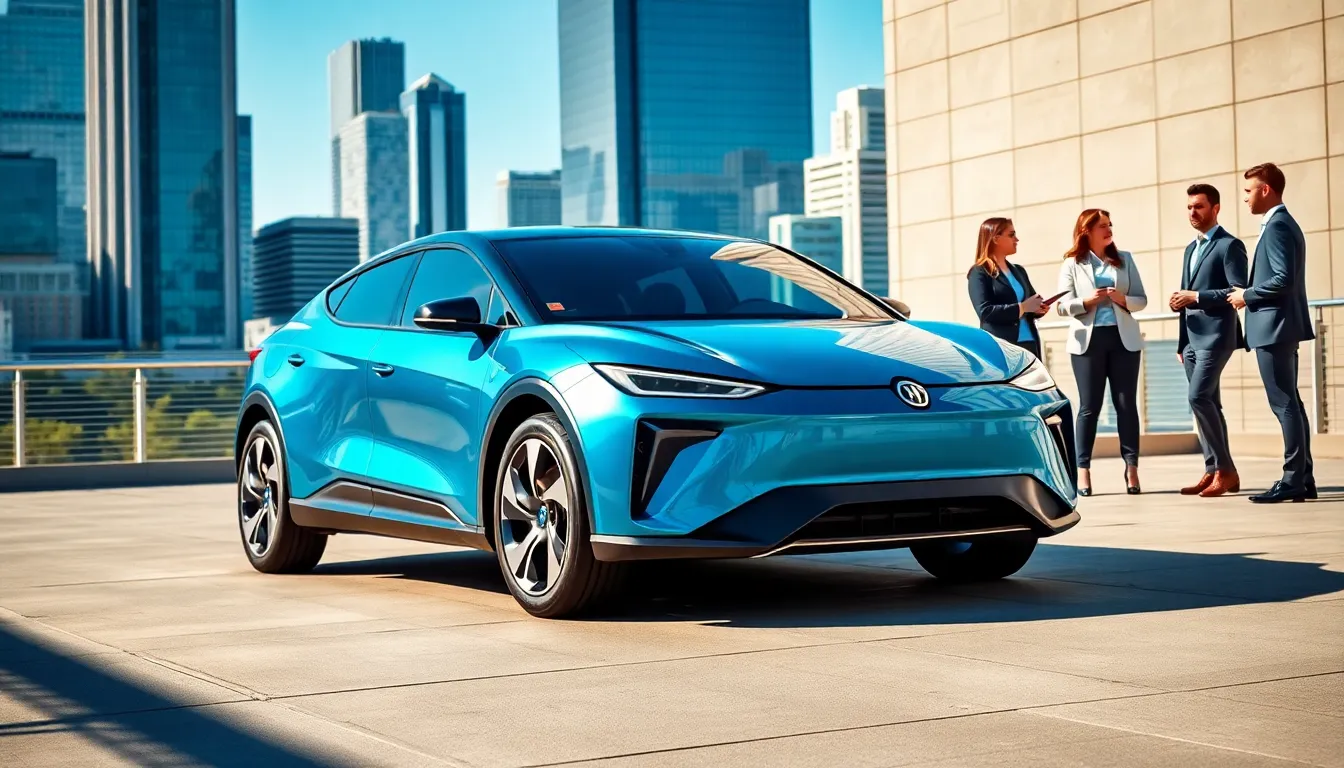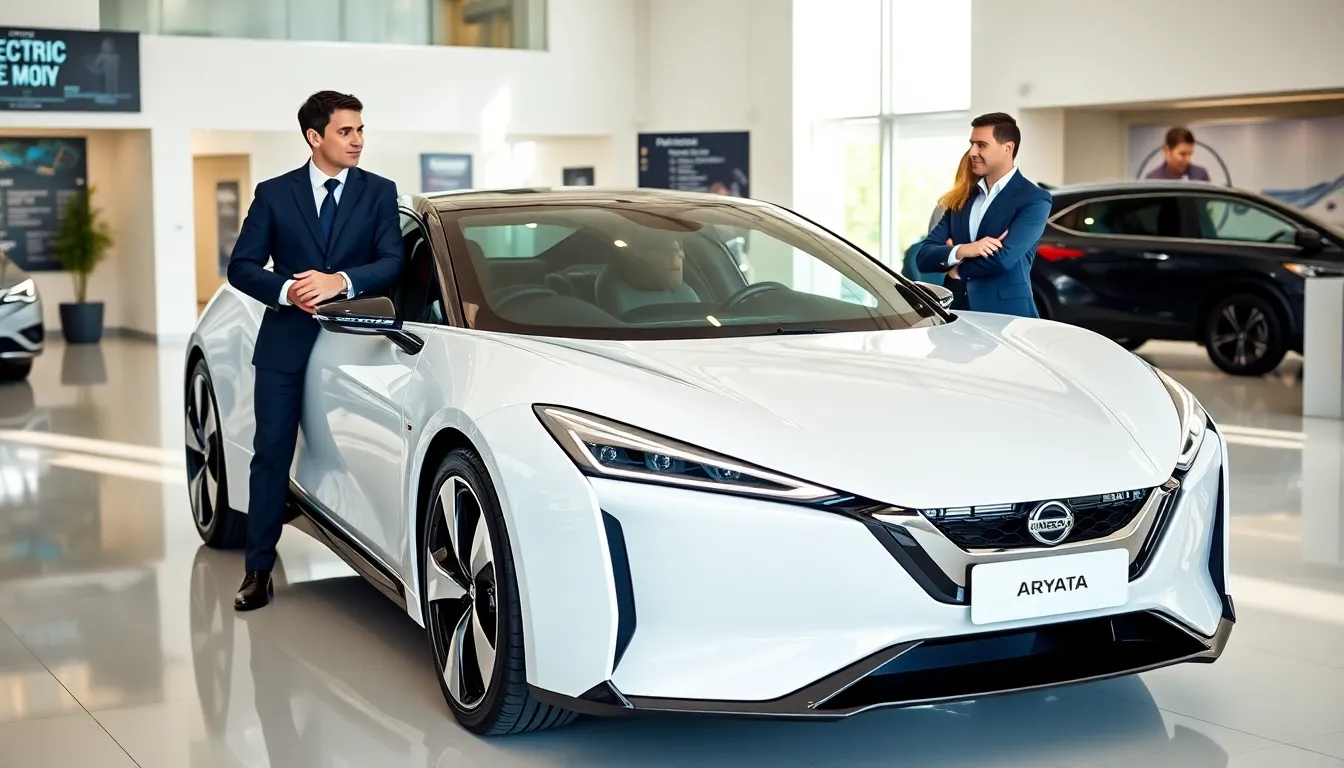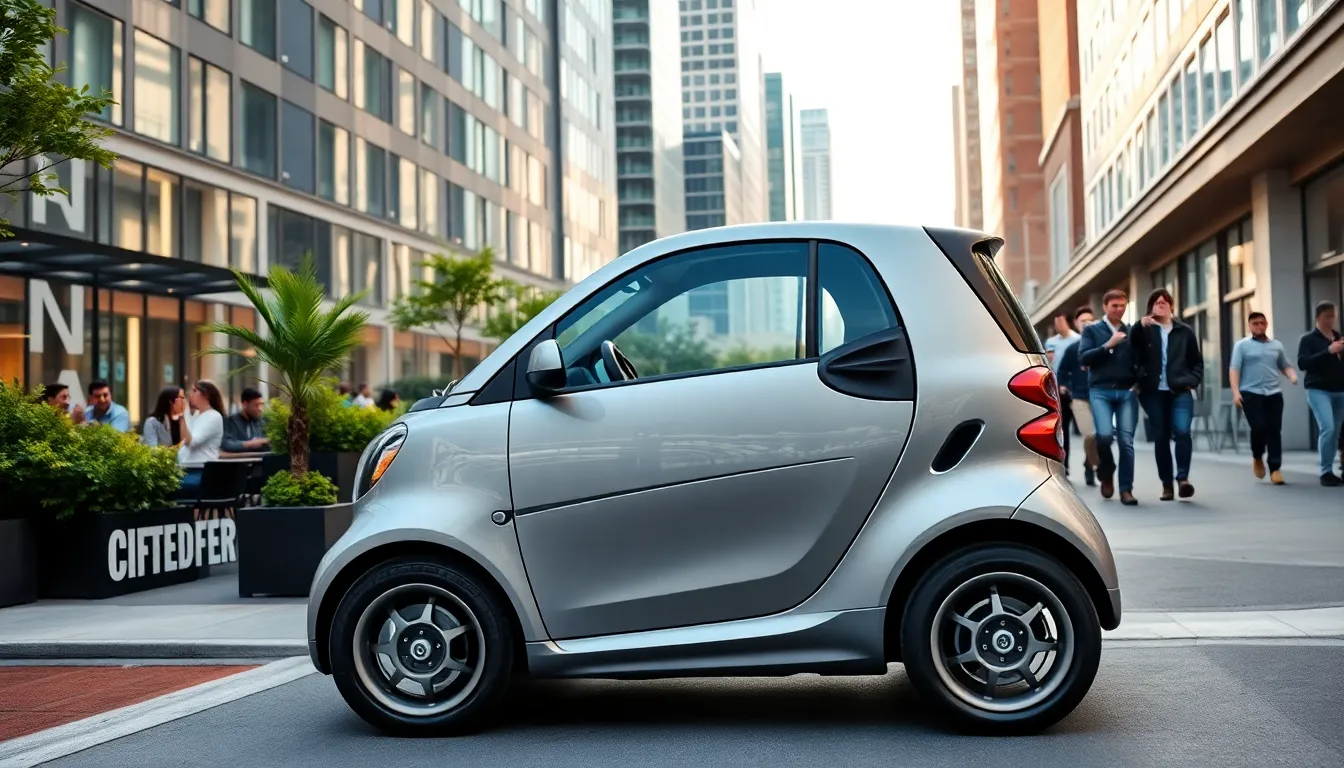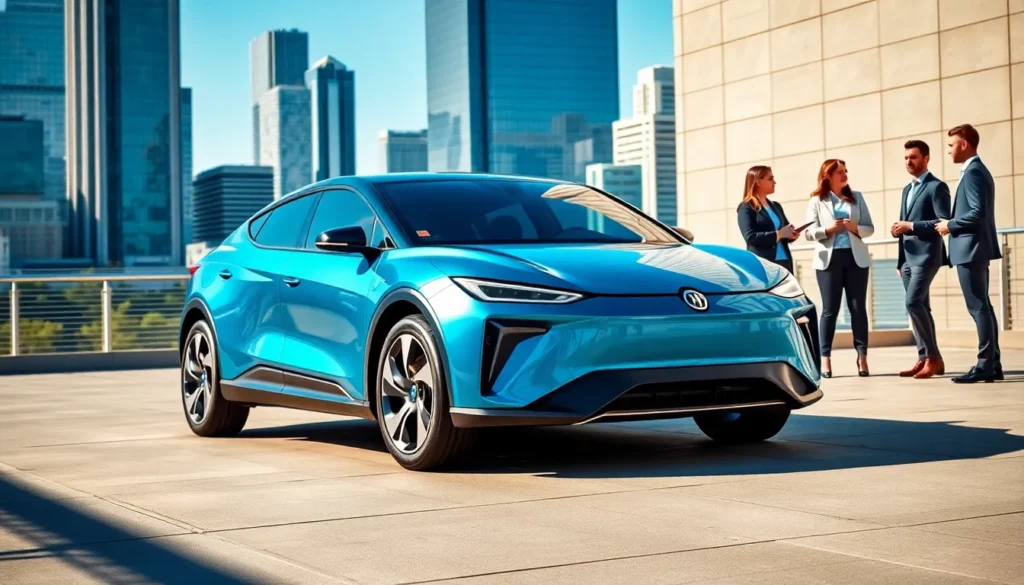Table of Contents
ToggleNio electric vehicles aren’t just electric cars: they’re a revolution on wheels. Imagine stepping into a vehicle that’s not only smart but also understands your needs and preferences. With features that make other cars look like they’re still in the stone age, Nio is here to turn the electric vehicle world upside down. Hold onto your steering wheels. This article dives deep into why Nio is the talk of the town and what makes these EVs the future of smart mobility.
Overview of Nio Electric Vehicles
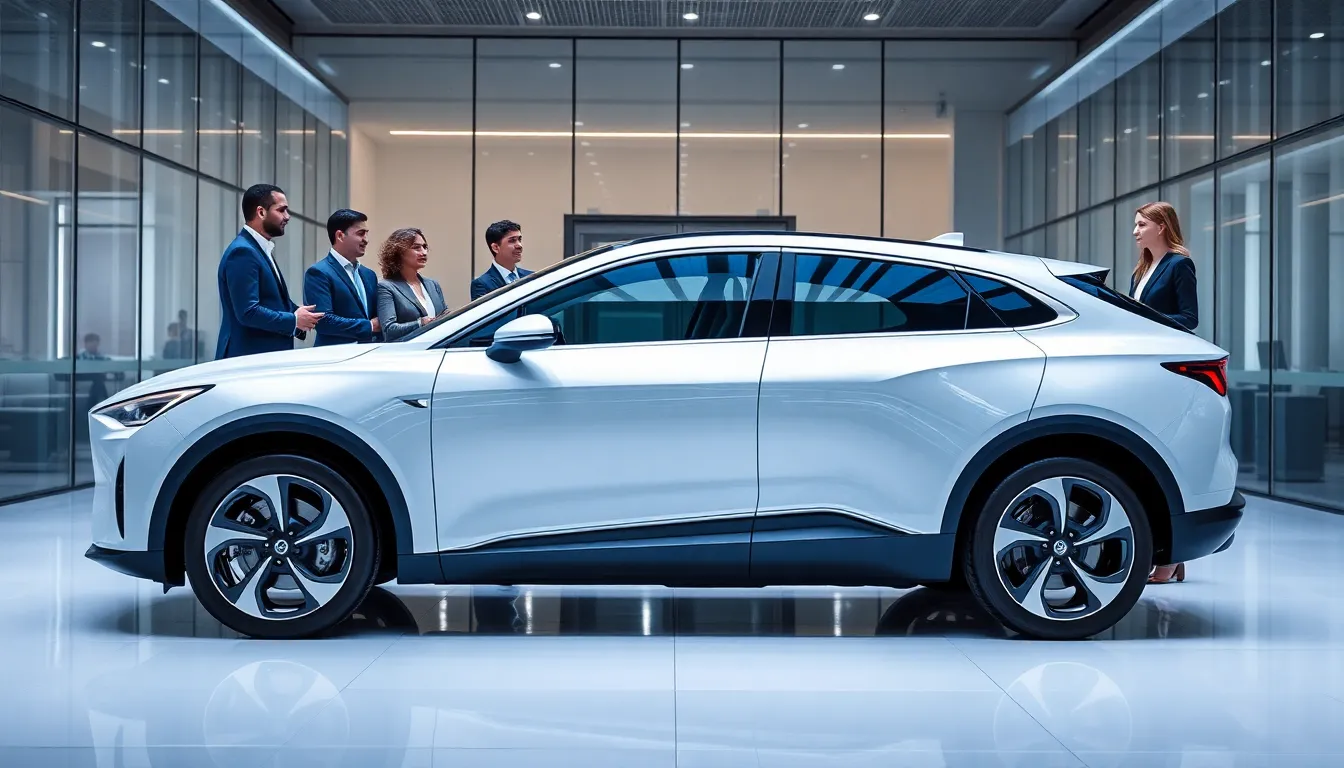
Founded in 2014, Nio has rapidly become a prominent name in the electric vehicle sector. With a mission centered around creating superior electric vehicles that combine luxury with sustainability, Nio seeks to be more than just a manufacturer: it aims to redefine what electric mobility can be. Their lineup, featuring models like the ES6 and EC6, showcases elegant designs intertwined with cutting-edge technology. They don’t just produce cars: they produce a lifestyle, appealing to those who seek performance alongside environmental responsibility.
By incorporating advanced AI technologies, Nio electric vehicles offer features that enhance user experience significantly. From predictive maintenance alerts to automated driving capabilities, these cars represent the epitome of smart mobility. What’s more, they’ve established a ‘battery as a service’ model that allows users to swap batteries at designated stations, emphasizing customer convenience and sustainability.
Key Features and Innovations
Nio electric vehicles are packed with features that set them apart from the competition. First off, let’s talk about performance. With impressive acceleration capabilities, many models reach 0 to 60 mph in under four seconds. That’s no small feat for an electric vehicle. Their top-tier engineering integrates a dual-motor all-wheel-drive system, ensuring not only speed but also stability and control on various terrains.
Another standout feature is the extensive use of smart technology. Nio’s vehicles come equipped with the NOMI AI system, a personalized digital assistant who can help with everything from climate control to navigation. Picture this: you enter your car, and it greets you, adjusts the temperature, and gets the playlist ready. Who wouldn’t want that?
On the innovation front, Nio is leading the charge with its battery swapping technology. Unlike traditional charging stations, where waiting can take up to an hour, Nio’s battery swap stations allow drivers to replace their depleted batteries in under five minutes. It’s a game changer, making long trips far less daunting.
Nio’s Impact on the EV Market
Nio has made waves in the electric vehicle market, pushing other companies to rethink their strategies. As competition increases, consumers are presented with more choices than ever before, a vital aspect of any healthy industry. The arrival of Nio has forced established brands to innovate rapidly, leading to improvements in battery technology, vehicle range, and overall user experience across the board.
Also, Nio’s emphasis on luxury makes it a challenge for traditional automakers who primarily focus on more budget-friendly models. In fact, luxury consumers are beginning to view Nio as a desirable alternative to some of the more established luxury brands. It’s not just about comfort and style: the environmental aspect is a significant draw for many consumers. With every Nio vehicle sold, consumers contribute to a more sustainable future, which aligns with increasing consumer awareness about climate change.
Also, Nio has ventured into international markets, expanding its reach and establishing itself as a global player in the EV segment. As the company continues to grow, it’s anticipated that the ripple effects of its innovations and commitment to sustainability will reshape the entire automotive landscape.
Sustainability and Environmental Considerations
In the world of electric vehicles, sustainability is not merely a trend: it’s a necessity. Nio embraces this philosophy wholeheartedly. The production processes employed by Nio prioritize eco-friendly materials and procedures to minimize their carbon footprint. Also, the focus on electric vehicles inherently promotes a cleaner environment by reducing reliance on fossil fuels.
Battery recycling is another pillar of Nio’s sustainability efforts. Unlike many manufacturers who brush aside the issue, Nio is developing effective ways to recycle battery materials, thereby reducing electronic waste and promoting a circular economy. With the right initiatives, Nio isn’t just looking to lead the EV market but also to set a standard for environmentally responsible practices in the automotive industry.
Besides, consumers can feel good about their purchase when they choose a Nio. It’s not just a vehicle: it’s a commitment to sustainability and a cleaner planet.
Challenges Facing Nio Electric Vehicles
Even though its successes, Nio faces several challenges that require innovative solutions. Supply chain issues, particularly in the wake of recent global events, have impacted Nio’s production capabilities. The semiconductor shortage has forced many automakers, including Nio, to adjust their production forecasts, delaying vehicle deliveries.
Competition is another significant hurdle. With numerous automakers entering the EV space, distinguishing itself from the multitude of offerings is crucial. While Nio has some unique selling points, the pressure to continuously innovate is immense. Customers expect not only cutting-edge technology but also exceptional service, putting a strain on resources.
Besides, consumer skepticism towards electric vehicles, particularly concerning range anxiety, continues to pervade. Although Nio’s battery swapping technology addresses some of these concerns, bridging the gap between consumer perception and reality remains an ongoing issue.
Future Prospects for Nio and the EV Industry
Looking ahead, Nio seems poised for significant growth and influence within the automotive industry. The EV sector is projected to evolve rapidly, with an increasing shift towards sustainable practices and technologies. Nio’s commitment to innovation positions it well for future market shifts, especially as global demands for eco-friendly vehicles rise.
As battery technology improves, we could see advancements in range, charging speeds, and vehicle performance, areas where Nio is already laying the groundwork. There’s also potential for Nio to expand its offerings further, perhaps venturing into electric trucks or buses, tapping into markets that haven’t yet seen the full implementation of electric vehicles.
To ensure sustained success, Nio must also maintain its focus on customer experience, leveraging data and insights to refine its strategies continually. Integrating user feedback into development processes will be crucial as they expand globally.



